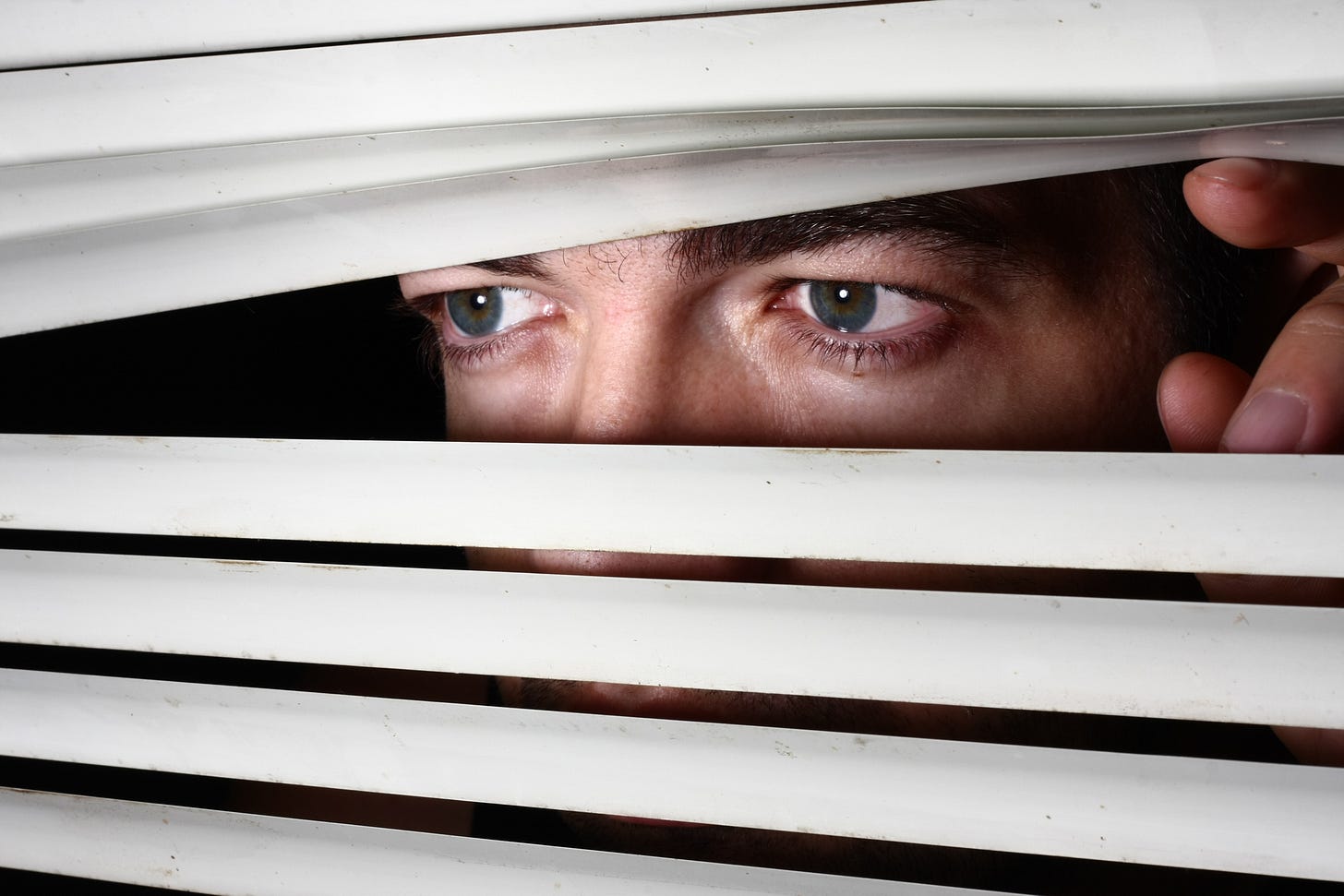If You Live in a Castle, Does Everything Feel Like a Siege?
Homeownership comes with a subtle and complicated psychic force: one of responsibility, pride, paranoia and protectiveness

A few weeks ago, around 11 p.m., my wife and I were sitting in our family room, and we heard voices outside, like a rowdy crowd. That’s unusual, but I figured the neighbors had guests and everyone was standing around before heading home. We went back to playing video games, and then suddenly I saw a hand slam our window. And like that, the noise and the crowd were gone.
It was either a group of stupid teens, or someone really didn’t like my opinions on housing policy. Wondering if this was a “thing”—maybe one of those silly viral social media challenges like gallon smashing from a few years back—I wrote off a quick post on Nextdoor, which, of course, I instantly regretted. In response to my specific question as to whether anyone else in the local area had had groups of rowdy teens knock on their doors or windows at night and then run away, I got three answers: two suggesting I should have shot the window-knockers, and one making an ominous reference to certain things happening all over the country these days. (It turns out it was graduation season and maybe prom night. That probably explained it.)
In our new home, we’ve had a couple of much less alarming things that sort of bothered me despite myself: Once, a neighbor’s landscaper left an old television at the edge of our lawn, for some reason. And sometimes, people park in a spot along our side lawn that isn’t really near any other house. “What are they doing there?” I wonder, as if the public street belongs to me. (Then again, many people don’t seem to know that it doesn’t belong to them either.)
Now when I say “despite myself,” what I mean is that I don’t really care about these things, but I feel as if, as a homeowner, I’m supposed to care. What’s it to me if someone parks in “my” spot near my property? What undue interest could they have in it? Robbers won’t just leave the car in front of your house while they go to their day job, after all. Yet something in me says, “You should possibly be concerned that someone parked there; maybe they’re up to something.” And that suspicion, enlarged by the value of the home you live in, becomes a sort of ideology or resting mental state.
An Extension of Ourselves
In a certain sense, the saying that possession is nine-tenths of the law is true. The doctrine of adverse possession basically means someone can end up owning your private property by occupying it, if you don’t defend your claim to it. Sure, that’s complicated and difficult to actually pull off. And the logic behind it—that the right to private property entails some level of maintenance and stewardship—is a good and pro-social one. But on the other hand, is the television really yours if you can sneak it out of Best Buy?
I get this weird sense that simply living in a detached house that you own exerts some kind of subtle psychic force. Not in a superstitious way, to be clear. Rather, in a way analogous to how cars (or at least driving) actually seem to cause rage and aggression. And even more than that, how they alter our perception of choices and consequences. As I wrote here:
The ubiquity of the car, and the level of violence and death that comes with it, is something you cannot completely extricate yourself from unless you completely refuse to drive. By driving you are almost assenting, maybe only on a subconscious level, to the amount of carnage which is associated, obliquely, with your decision.
What does it do to your character, and to your mind, to accept the fact that there is a good chance you will kill another human being simply in the course of running your errands? Once you accept that a toll of 30,000 to 40,000 people is normal and acceptable, what else are you accepting or allowing yourself to accept? Does it erode our moral integrity to assent to that? To feel, and to know, that in some way our freedom of movement demands a death toll?
Or more specifically, here, on an incident I witnessed in a strip mall parking lot:
A motorist in front of me rolled through a stop sign (I think) and in any case failed to see a woman crossing. He braked, she yelled at him, he rolled down his window and yelled back, and then when he slowly drove away, she gave his trunk a whack with her palm.
Then, losing her balance, she fell on the ground and apparently injured her knee.
The motorist got out of the car, obviously making sure she hadn’t been badly hurt, but also angry that she’d hit his car. “You blew through that stop sign,” she said, shaken and quietly angry. “No I didn’t. And you don’t hit someone’s car,” he snapped back.
How is it that the normal or default view is that hitting someone’s car with your bare hand is an offense on about the same order as nearly running someone over? Consider how close people come to saying that pedestrians who are struck by cars while jaywalking basically had it coming. That seems like a departure from normal human attitudes.
Some of it is the high price of a car, no doubt. But some of it is the more subtle sense that the car is an extension of oneself, almost a prosthetic. Or that, like the home, it is a castle, something that is or should be almost metaphysically inviolable. At least, that would explain why striking someone’s car inspires such rage.
Something To Lose
Sometimes urbanites talk about meeting dates on the subway, or crying on the bus. They think of riding transit as spending a moment in the city’s great big living room. Suburbanites do those things in the car. They insulate themselves within it. The design of suburban life creates and reinforces a kind of protective privacy.
Is this a fear of potential loss? I wrote once, “Maybe how you handle having things to lose is a test of your character.” Is it possible to resist that homeowner’s suspicion? Or is that asking people to do something impossible? And if it is impossible, what does that say about the supposed virtues of ownership?
I have found it true, in my own life, that owning a home inspires more care and attention in me toward my living space. But it has also taken away a sort of casualness, a freedom from care and concern. (My renting experience was a newer building with good management; had I had a distant landlord, my experience might have been different.) It’s a little bit like packing light for vacation. A house is a castle and a burden. It’s insurance at a high premium.
It may be the case that ownership teaches people responsibility in a moral sense—that the responsibility of maintaining a home translates into the rest of your life. Or it may be that inextricably packaged with that responsibility and security is the paranoia and protectiveness that comes with the knowledge that you have a lot to lose. A man’s home is his castle. But if you live in a castle, does everything feel like a siege?
I like homeownership, and I think, frankly, that having to be responsible for my own property is good for me. But, just as I sometimes wish I could extricate myself from the need to drive or own a smartphone, I sometimes look back fondly at the days of “packing light.” When noise in the hallways or a drunken, random slam on my door was a little annoying and a little amusing, not an attack on my sacred little island. And, as with driving, I have to resist the implicit ideology of the thing in order to remain who I want to be.
Perhaps you’re hearing echoes of “You will own nothing and be happy.” But I’ve got someone else’s words bouncing around in my head: “Where your treasure is, there will your heart be also.”





